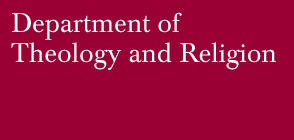‘The Hearing Voices Movement as Postmodern Religion? – Meaning, Power, Sacralisation, Identity.’
 Dr Adam Powell, a Junior Research Fellow on the Hearing the Voices Project, will be presenting his paper (title above) as part of ‘The Durham Religion and Society Research Seminar‘ series on 6 December 2016 from 11:30 – 13:00.
Dr Adam Powell, a Junior Research Fellow on the Hearing the Voices Project, will be presenting his paper (title above) as part of ‘The Durham Religion and Society Research Seminar‘ series on 6 December 2016 from 11:30 – 13:00.
Seminar Room C, Abbey House (Palace Green, Durham University).
Abstract:
‘Over the past 40 or 50 years, scholars of religion have frequently attempted to use the tools of social science to analyse, describe, and explain the relevance and persistence of religion in the modern world. With the bold predictions of the secularization thesis as their stimuli, many sociologists and anthropologists preferred to focus on the underexplored, marginalised, or otherwise unexpected expressions of religion within those ostensibly secularising contexts. Such studies have led to an abundance of theories and accompanying terms: ‘implicit religion’, ‘vernacular religion’, ‘vicarious religion’, ‘lived religion’, ‘popular religion’, and ‘folk religion’. Without choosing any one of these, but owing much to their shared – arguably postmodern – themes of commonplace sacrality and personal empowerment, this paper seeks to explore the possibility of the Hearing Voices Movement (HVM) as an example of religion-making. HVM is a growing force of ‘voice-hearers’ from at least 28 countries who have formed user-led networks for activism and mental health recovery. More importantly, it is argued that HVM blends meaning-making, postmodern notions of individualism in relation to power structures, ritual embodiment, and institution-making, resulting in a striking example of sociologist Hans Mol’s notion of religion as the ‘sacralisation of identity’. The paper ends with reflections on what this case might mean for our understanding of religion in the 21st century, with particular emphasis on notions of the postsecular, the postmodern, and definitions of religion in general.’
Further information about ‘The Durham Religion and Society Research Seminar’ series can be found here.
